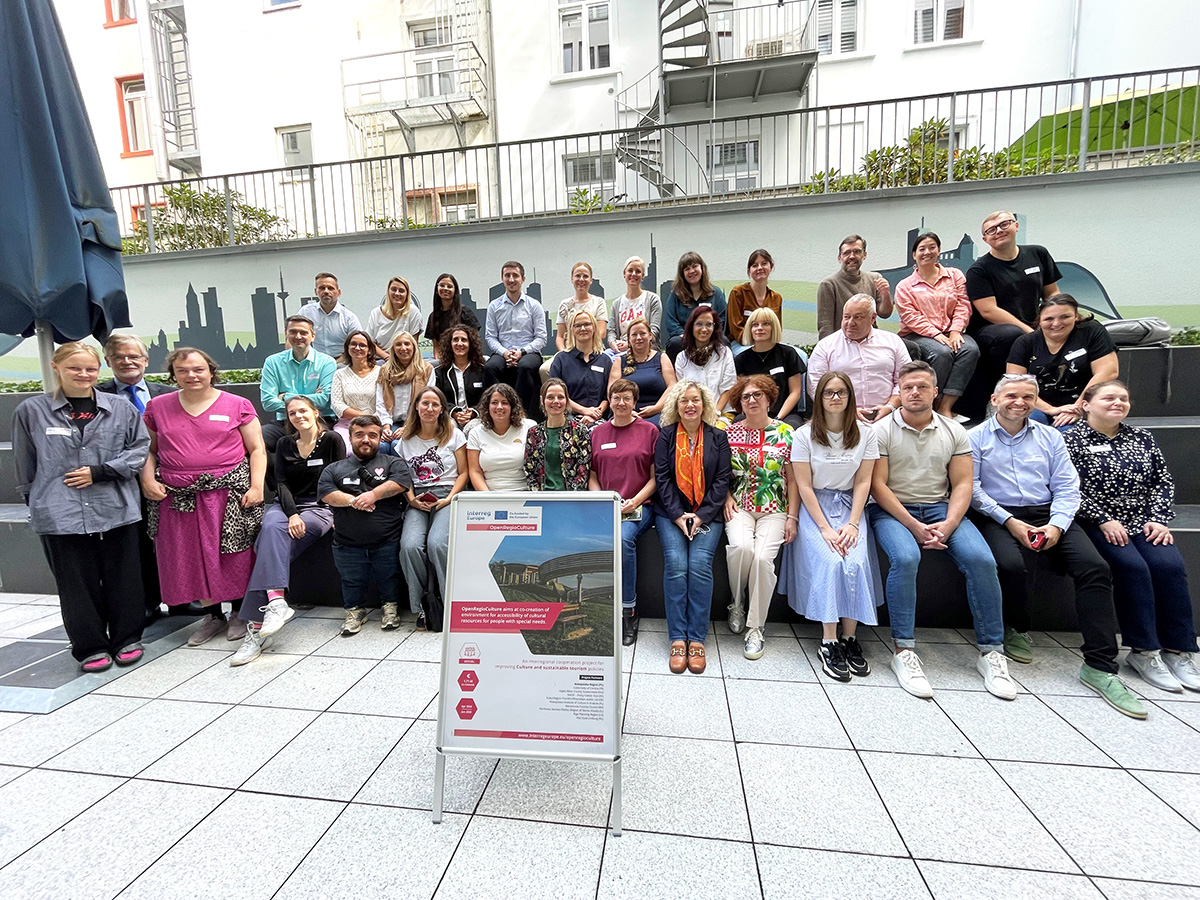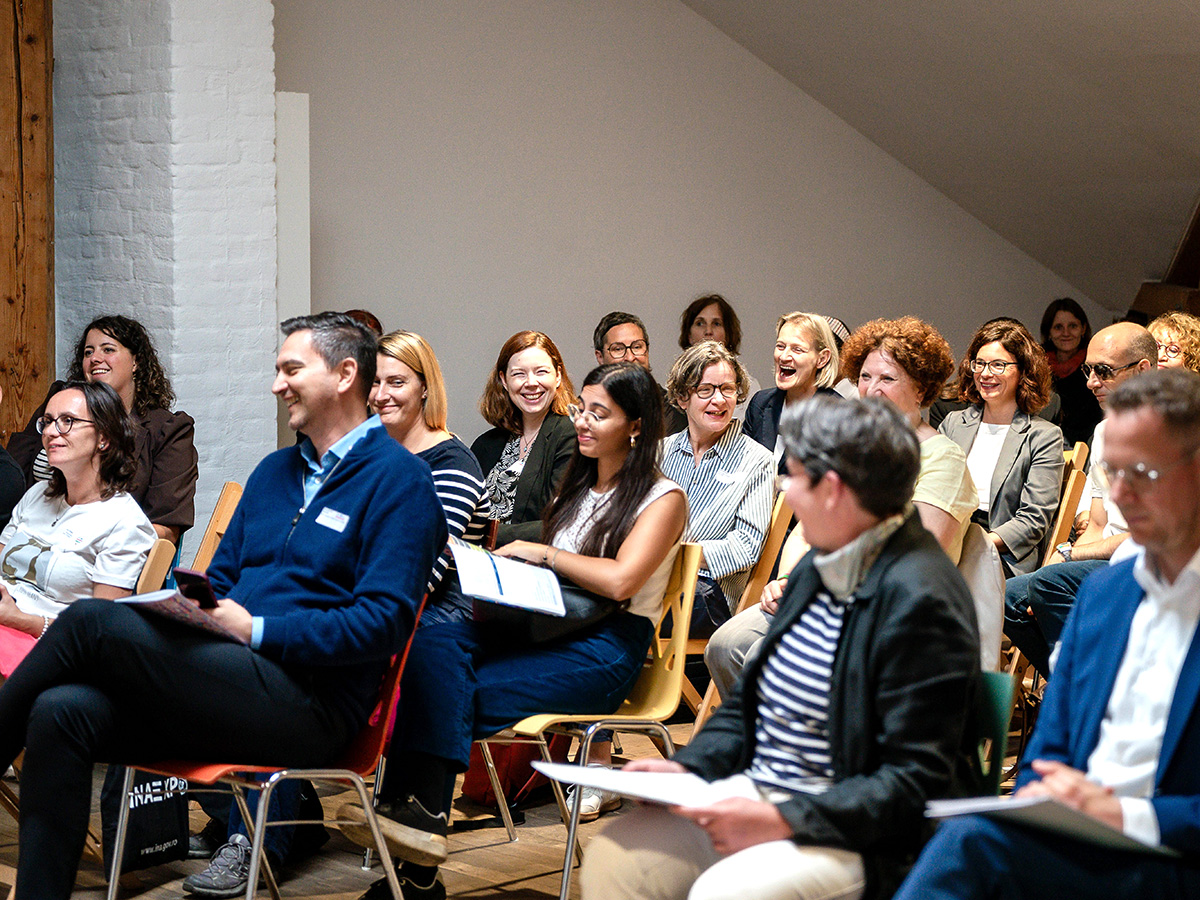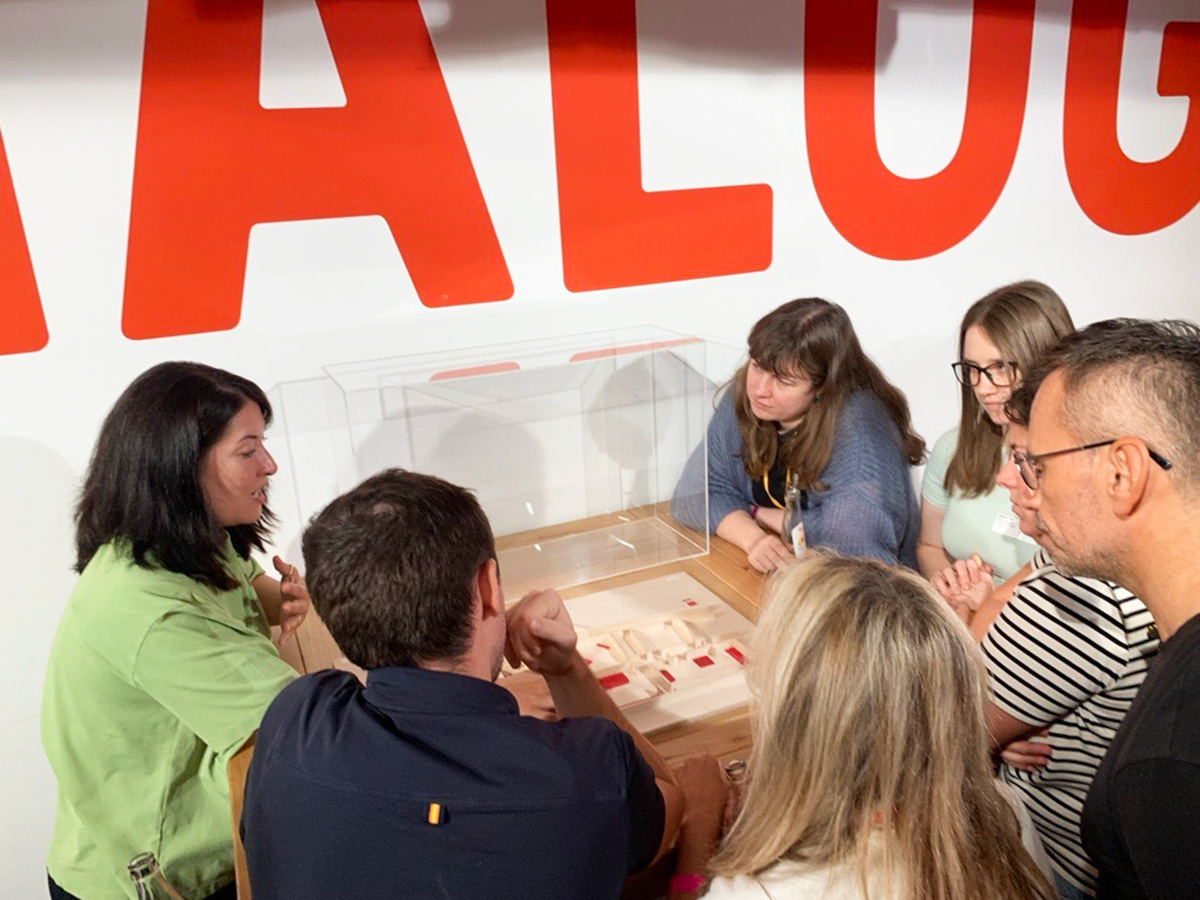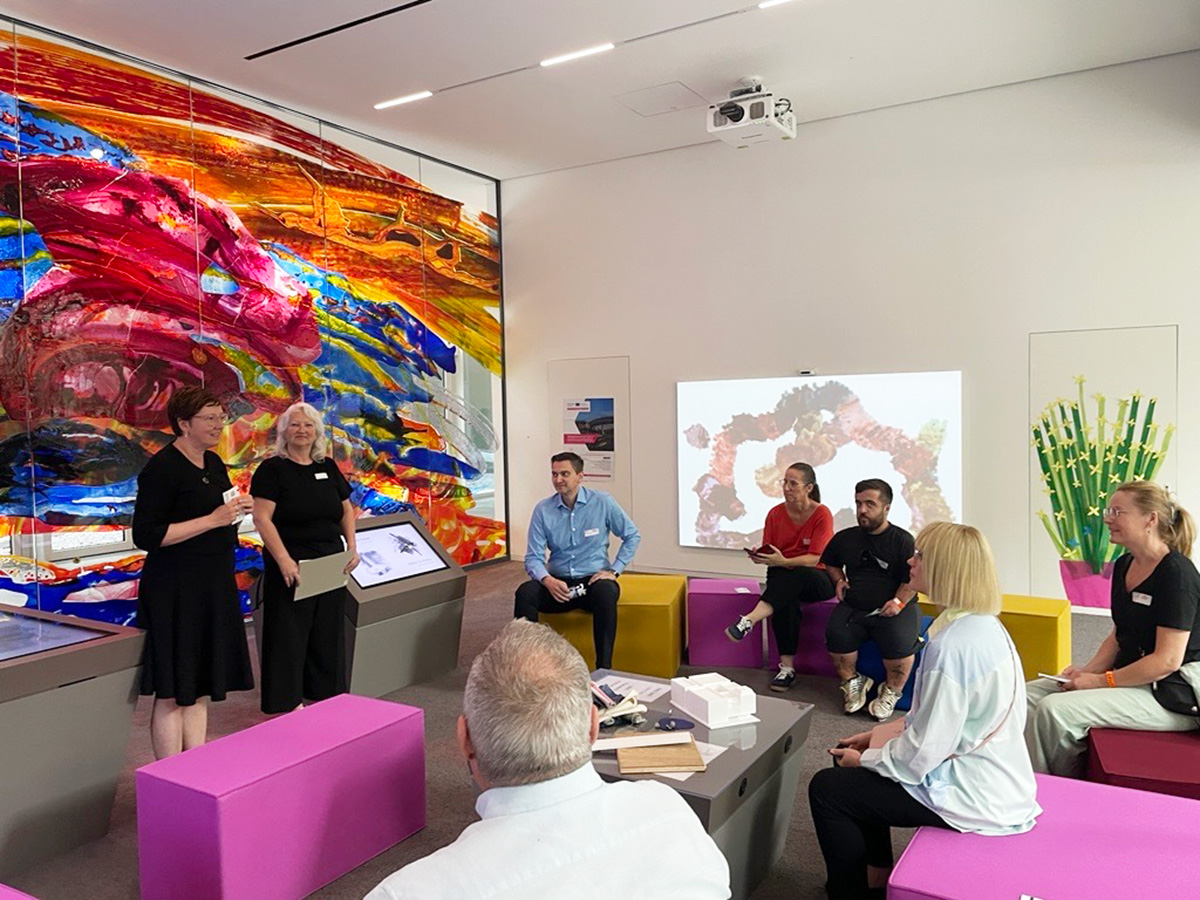How can Europe’s cultural spaces truly open their doors to everyone?
That question guided a three-day study visit in Frankfurt and Wiesbaden in early September, where KMOP joined cultural organizations and regional authorities from across Europe for the 4th Interregional Workshop and Study Visit of the *OpenRegioCulture project. The gathering showcased how German institutions are leading the way in accessibility and what lessons other regions might adopt.
The event brought together cultural organizations, policymakers, and civil society actors to witness accessibility in practice and debate its policy implications. Through site visits, workshops, and discussions, we contributed our expertise in social innovation and inclusive policy design, helping ensure that real-world practices can inform future European recommendations.
The program opened at Künstler*innenhaus Mousonturm, an international cultural hub known for supporting experimental art. What makes it stand out, however, is its inclusive workforce. The institution actively employs people with disabilities, embedding accessibility not only in its audiences but also in its daily operations. Participants also visited the Dialogmuseum Frankfurt, home to the renowned “Dialogue in the Dark” experience. Guided by blind professionals, visitors navigate everyday environments such as walking through a park, boarding a boat, or stopping at a café entirely in darkness.
Wiesbaden offered further examples of accessibility in action. At the Stadtmuseum am Markt, visitors followed tactile floor guidance and tested audio guides created by local students. At Kunsthaus Wiesbaden, a visually impaired guide led a tour, while Schloss Freudenberg hosted a contemporary dance performance with live audio description, making the choreography accessible for both sighted and visually impaired audiences.
The final day shifted from practice to reflection. A keynote speech by a blind accessibility expert outlined practical solutions for digital inclusion and everyday barriers, while workshops encouraged participants to distil insights into concrete recommendations for the future.
Several key lessons emerged: the need for continuous innovation, the urgency of breaking stereotypes, the importance of involving people with disabilities in cultural work, and the opportunities offered by new technologies such as 3D tools, VR, and accessible websites. Above all, participants emphasized the value of cross-border cooperation to ensure cultural spaces become places for everyone.
For us at KMOP, the visit was more than a learning opportunity. It was a chance to build partnerships and discover practical models that can help shape inclusive cultural policies across Europe, making sure the question at the heart of the visit leads to real change.
Interested in discovering why many cultural spaces still remain out of reach for people with disabilities across Europe? Read more in our latest research report.
For further information you can contact us at [email protected].
*The study visit was part of the OpenRegioCulture project, which is funded by the Interreg Europe.




